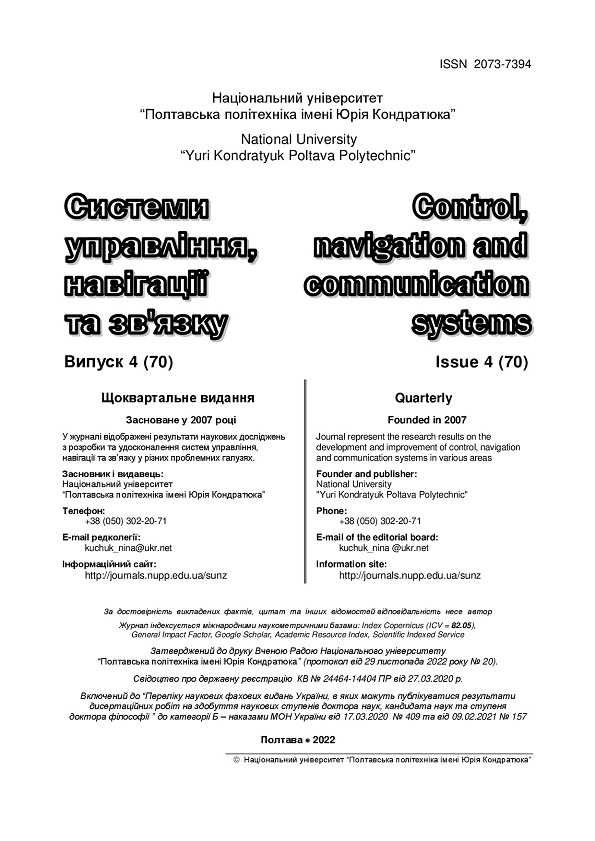APPLICATION OF THE PROVISIONS OF THE GENERAL THEORY OF MEASUREMENTS WHEN SOLVING SELECTION PROBLEMS
DOI:
https://doi.org/10.26906/SUNZ.2022.4.091Keywords:
metrology, qualimetry, uncertainty, order scalesAbstract
The impetus for this publication was an article on the possibility and need to use the general theory of measurement in judicial practice based on considerations of the state and prospects of judicial decisions by the judiciary, as they solve the problem of choice (punishment or justification) as a result expert evaluation in conditions of uncertainty. The article discusses the possibility of disseminating methods and tools for decision-making in the field of metrology as a result of measurement and expert evaluation in conditions of uncertainty in such areas as pedagogical and general qualimetry. To solve the problem, it is proposed to use in educational practice to assess the level of learning (level of acquisition of knowledge, skills and abilities) of subjects of learning four-point scales of the order. Their compatibility with the stobal rating scale and the corresponding ESTC scale is shown. The corresponding nomogram is given, the logarithmic four-point scale of which is obtained on the basis of the probabilistic-information approach. The procedure of data processing of expert assessment (measurement) in pedagogical qualimetry is considered, which can be partially used for processing the characteristics of objects of comparison (OC) in qualimetry. The possibility of applying traditional and improved four-point scales and elements of fuzzy mathematics in qualimetry in the construction of OC models. As directions of implementation of the principles of the general theory of measurements and procedures of expert estimation (measurement) at the decision of problems of a choice it is offered to improve legal, normative, directive and other documents on metrological activity concerning concrete subject area and objects of comparison, and distribution of their scope.Downloads
References
Dehtyarʹov O.V., Dubrovina V.V. , Kozlov V.Ye. , Kozlov Yu.V. Zahalʹna teoriya vymiryuvanʹ yak osnova ekspertnoho otsinyuvannya [General theory of measurements as a basis for expert evaluation]. Systemy obrobky informatsiyi. – Kharkiv: KHUPS, 2015. – Vyp. 10 (135). – P. 178-181. (in Ukrainian).
Shishkin I.F. Justice de jure and de facto [Pravosudye de-yure y de-fakto]. Available at: ttp: // ria-stk. ru.
Kozlov V.Ye. , Kozlov Yu.U. V. , Kobzyev V.G. , Moshchenko I.O. Metod otsinyuvannya rivnya vyvchenosti subʺyekta navchannya [Method of assessing the level of study of the subject of education]. Information systems and technologies IST-2020: materials of the 9th International. November 17-20, 2020 - Kharkiv, Ukraine. - Kharkiv: Printing House Madrid, 2020. - P. 160-162. (in Ukrainian).
Kozlov V.Ye., Olenchenko V.T., Yuzʹkov I.O. Modelʹ podannya otsinnykh funktsiy vykladacha [Model of representation of evaluative functions of the teacher]. Systemy obrobky informatsiyi. – Kharkiv: KHU PS, 2009. – Vyp. 6(80). – P. 233–236.
Varhalyuk V., Derkach T. Analiz rezulʹtativ pedahohichnoho eksperymentu z vprovadzhennya shkaly ECTS u VNZ Ukrayiny [Analysis of the results of a pedagogical experiment on the implementation of the ECTS scale in Ukrainian universities]. Informatyka ta informatsiyni tekhnolohiyi v navchalʹnykh zakladakh. №2, 2007. P. 66-70. (in Ukrainian).
Kozlov V.Ye, Novikova O.O. Teoretyko-mnozhynnyy metod ekspertnoho otsinyuvannya [Theoretical-multiple method of expert evaluation]. Systemy obrobky informatsiyi. - Kharkiv: KHU PS, 2012. – Vyp. 9(107). – P. 291-293. (in Ukrainian).
Orlov A. I. Ekonometrika. [Econometrics], Rostov-na-Donu, Feniks, 2009. 572 р. (in Russian).
Horelyshyev S.A., Iokhov O.Yu., Novykova O.O. Teoretyko-mnozhynnyy metod profesiynoho vidboru [Theoretical-plural method of professional]. Systemy obrobky informatsiyi. – 2011. – Vyp. 2(92). – P. 188-190. (in Ukrainian).




